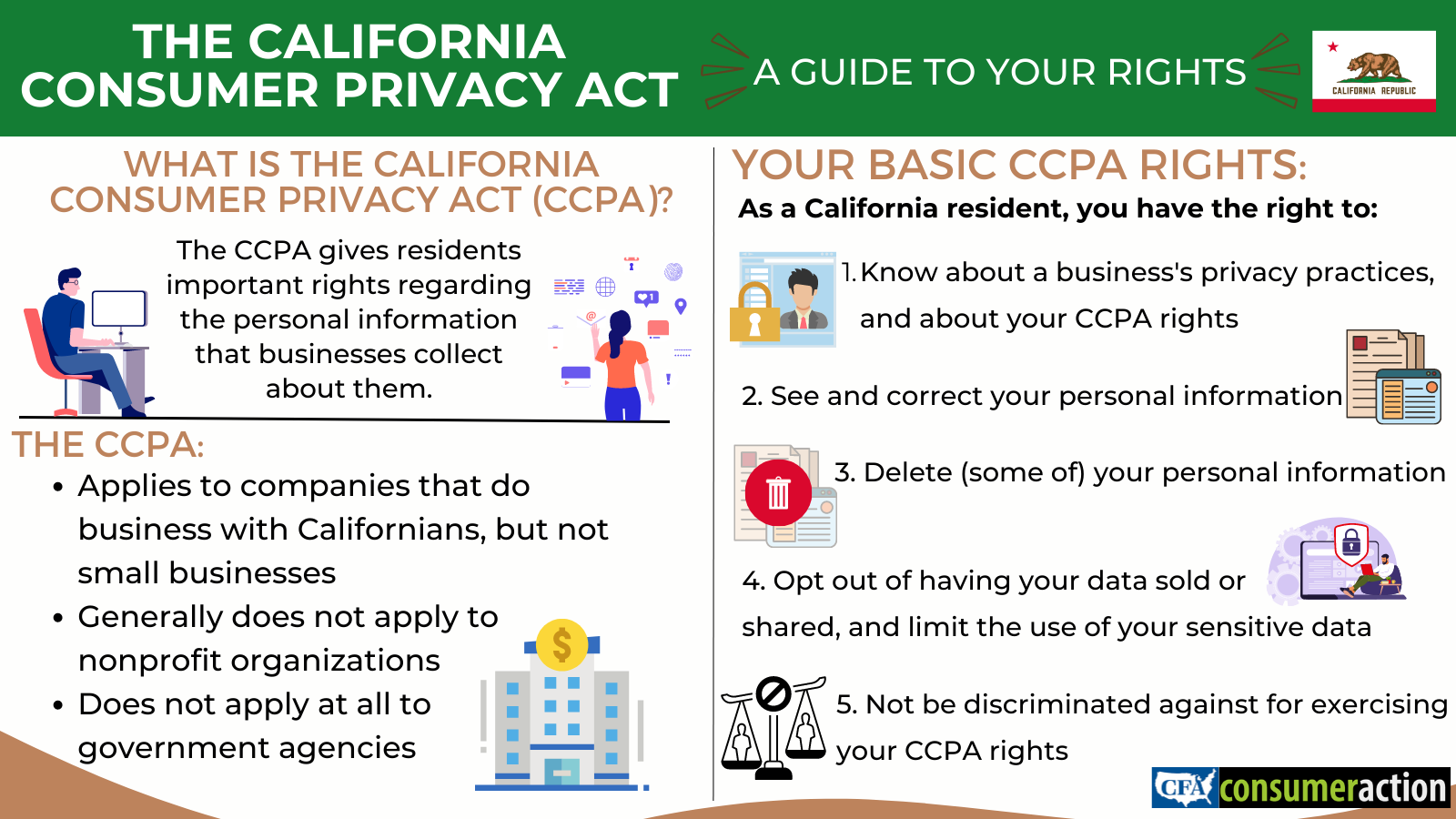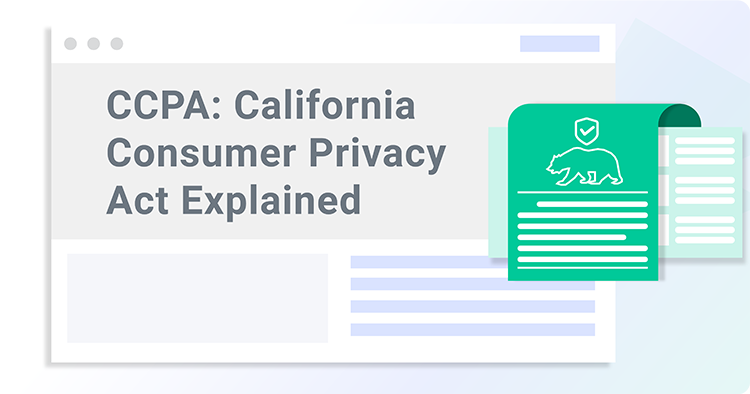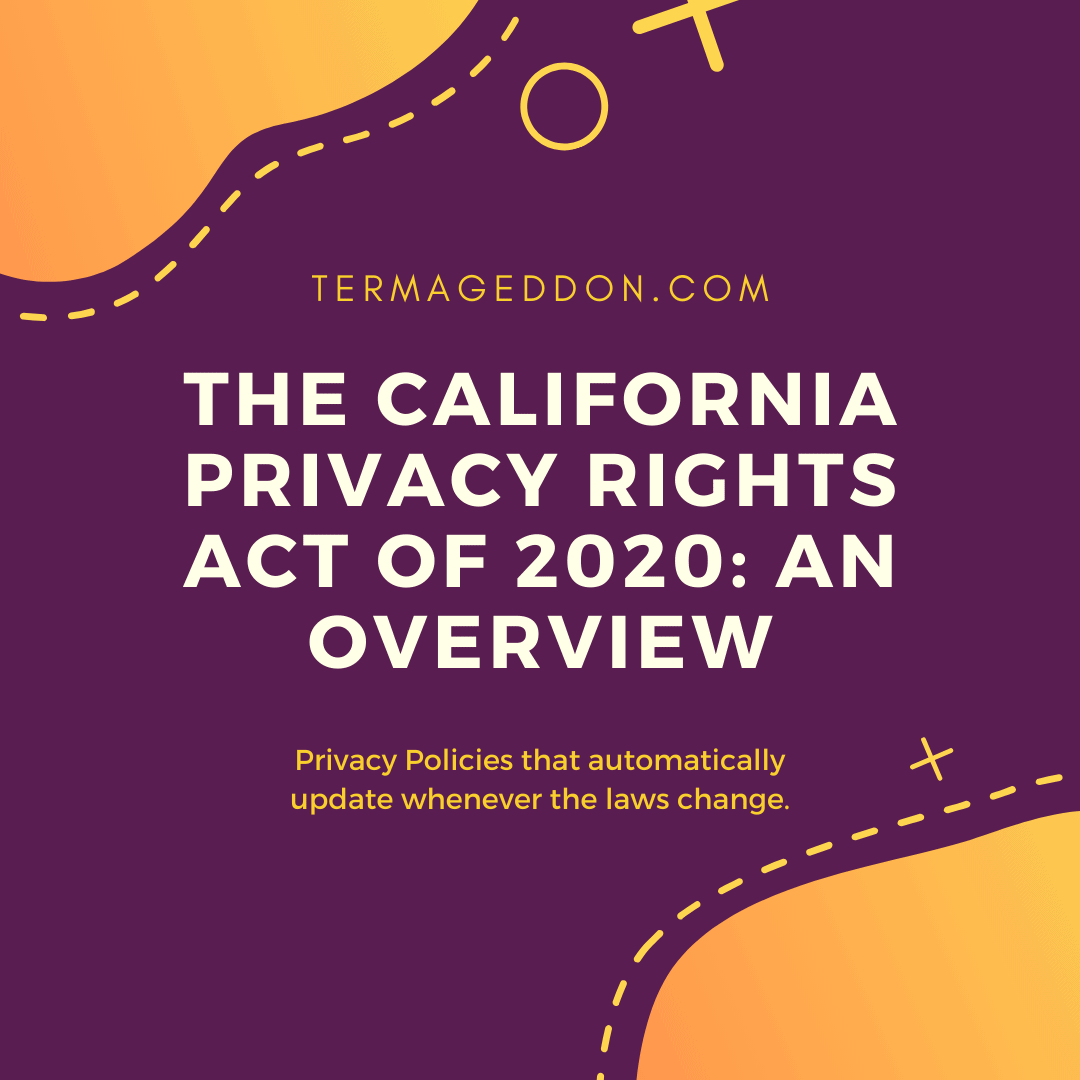California Consumer Privacy Act Private Right Of Action

For California Consumers Your Rights Under The California Consumer Privacy Act Consumer The cpra expands the current ccpa private right of action (ca civil code section 1798.150 (a) (1)) by authorizing consumers to bring lawsuits arising from data breaches involving additional categories of personal information. specifically, the cpra adds email address in combination with a password or security question and answer that would. The cpra expands the current ccpa private right of action (ca civil code section 1798.150 (a) (1)) by authorizing consumers to bring lawsuits arising from data breaches involving additional.

Ccpa California Consumer Privacy Act Explained Termly Significantly, a bill (sb 561) backed by the attorney general of california to expand the private right of action to any violation of the consumer rights provided by the ccpa has stalled in committee, making it less likely that the private right of action and statutory damages will meaningfully expand to the entire ccpa before the operative date. Private right of action under the ccpa. one major change in the ccpa is its establishment of a limited but potentially significant private right of action for california consumers. under the law, california consumers have a private right of action when their “nonencrypted and nonredacted personal information” is “subject to an. The ccpa extends california's data breach laws by creating a private right of action for unauthorized access, theft, or disclosure of certain non encrypted and non redacted personal information. importantly, the data breach liability section defines personal information much more narrowly than the general ccpa definition and ties it to part of. For a private right of action under any other law.”[6] second, the fact that the ccpa provides a private right of action for one provision, but no others, suggests it is the only private right of action.[7] third, the ccpa makes clear that the attorney general has enforcement power over all provisions,[8] including the.

The California Privacy Rights Act Of 2020 An Overview Termageddon The ccpa extends california's data breach laws by creating a private right of action for unauthorized access, theft, or disclosure of certain non encrypted and non redacted personal information. importantly, the data breach liability section defines personal information much more narrowly than the general ccpa definition and ties it to part of. For a private right of action under any other law.”[6] second, the fact that the ccpa provides a private right of action for one provision, but no others, suggests it is the only private right of action.[7] third, the ccpa makes clear that the attorney general has enforcement power over all provisions,[8] including the. Personal information is information that identifies, relates to, or could reasonably be linked with you or your household. for example, it could include your name, social security number, email address, records of products purchased, internet browsing history, geolocation data, fingerprints, and inferences from other personal information that could create a profile about your preferences and. The law includes detailed disclosure requirements, provides individuals with extensive rights to control how their personal information is used, imposes statutory fines and creates a private right of action —and will require companies to rethink some of their data processing practices.

California Consumer Privacy Act 2020 Ccpa Explained Personal information is information that identifies, relates to, or could reasonably be linked with you or your household. for example, it could include your name, social security number, email address, records of products purchased, internet browsing history, geolocation data, fingerprints, and inferences from other personal information that could create a profile about your preferences and. The law includes detailed disclosure requirements, provides individuals with extensive rights to control how their personal information is used, imposes statutory fines and creates a private right of action —and will require companies to rethink some of their data processing practices.

Comments are closed.